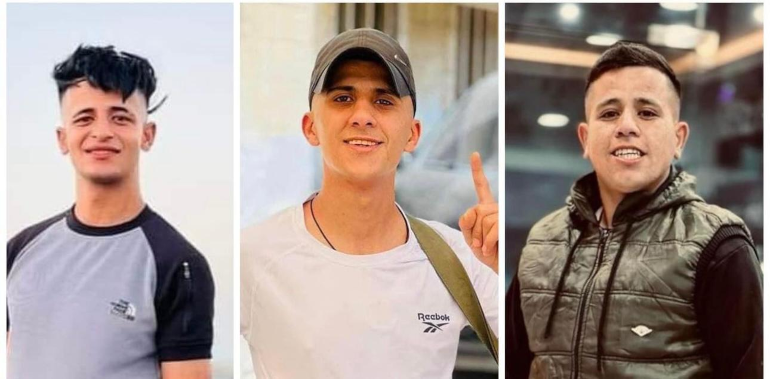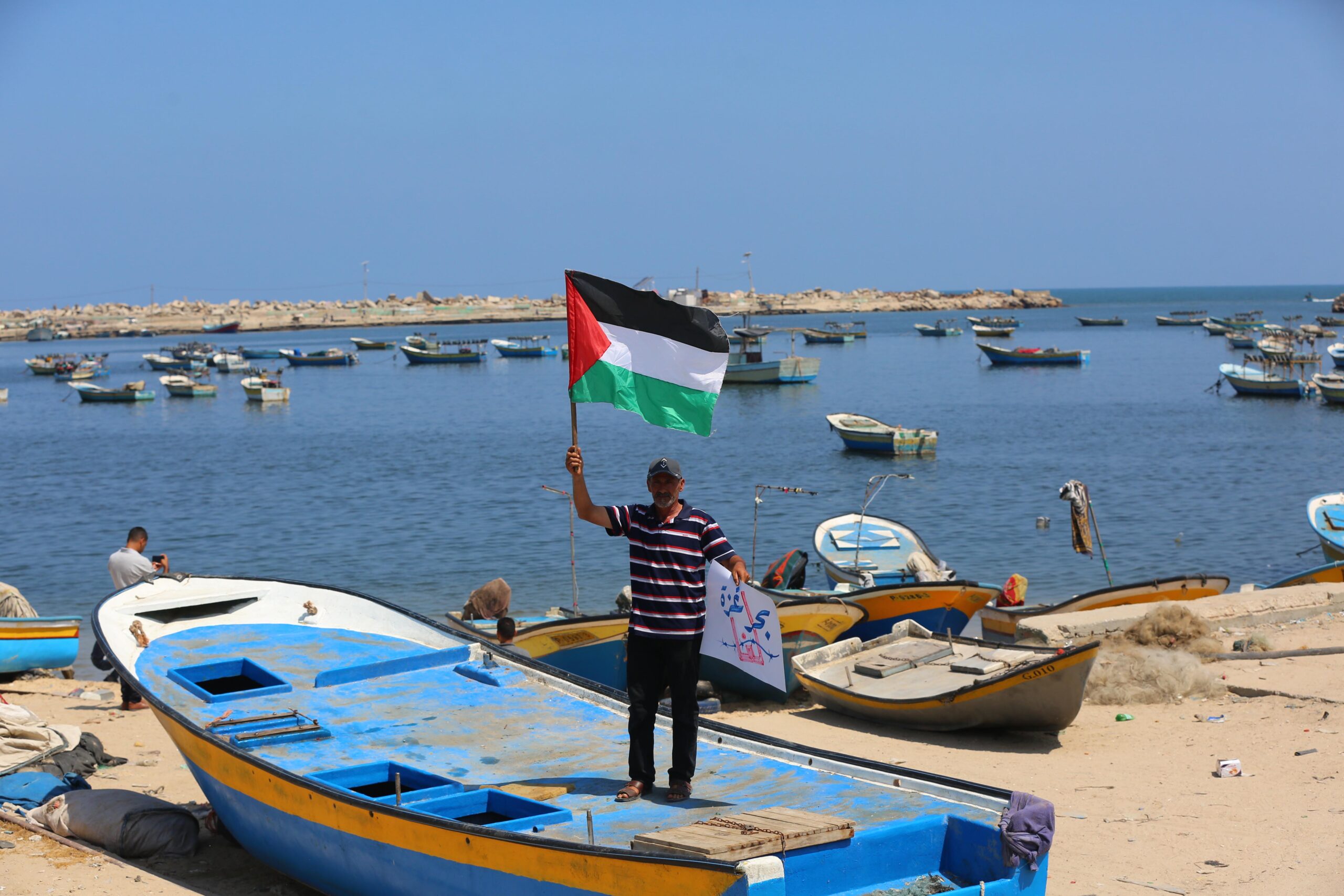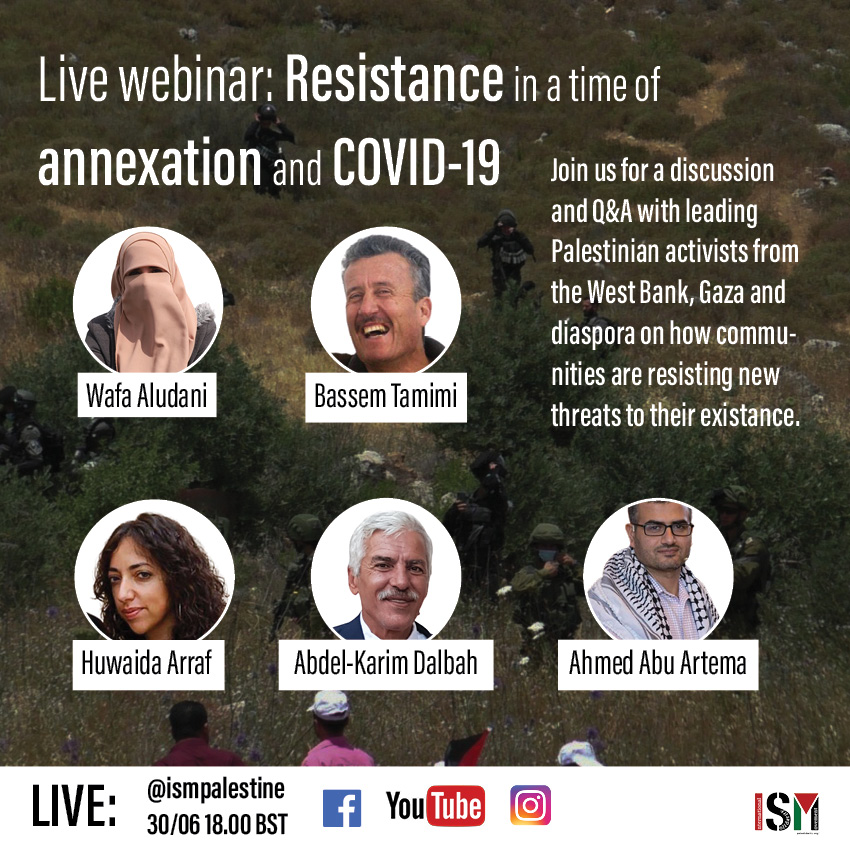Category: Gaza
-
Six Palestinian martyrs in less than 24 hours
Jenin – 20-9-2023 By Diana Khwaelid An Israeli Special Force unit stormed the Jenin camp in the northern West Bank on Tuesday evening, 19-9-2023, around 20:30 to besiege a Palestinian house. Palestinian fighters were inside the house, which belongs to the Abu Al-Baha family. Dozens of Israeli military vehicles stormed the camp, and Palestinian fighters…
-
Fisherman’s union hold a sit-in at Gaza port demanding an end to Israeli abuses
13 July | International Solidarity Movement | Gaza On Sunday, the Fishermen’s Syndicate in the Gaza Strip organized a protest sit-in and a press conference, demanding an end to the Israeli abuses against fishermen and the expansion of the fishing areas in the Gaza Sea. Dozens of fishermen took part in the Gaza Port vigil…
-
Resistance in a time of annexation and Covid-19 – an ISM webinar
ISM will be hosting a webinar on June 30th, Tuesday 20:00 Ramallah time, on annexation, COVID-19, resistance and international solidarity with the Palestinian struggle for equality and justice.



